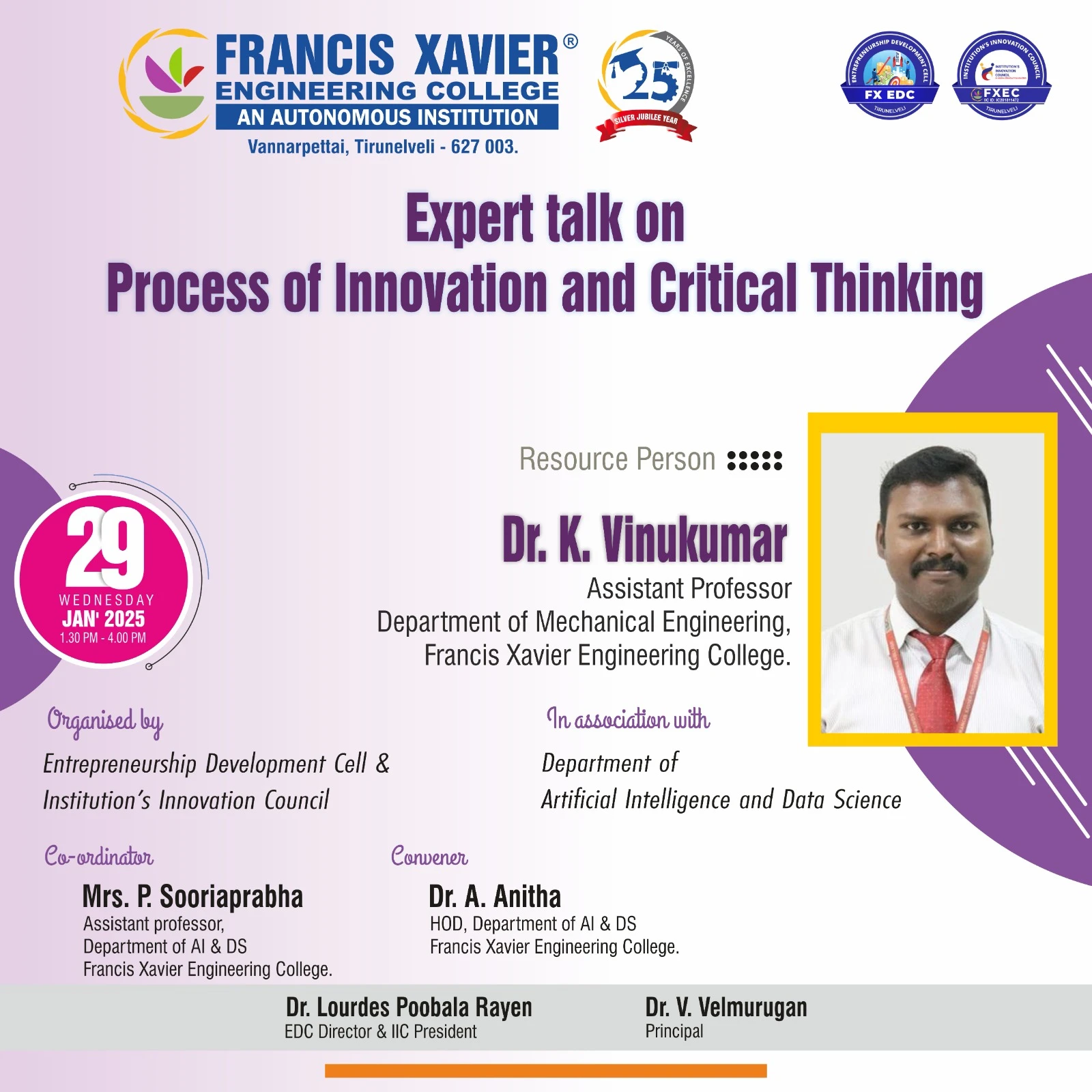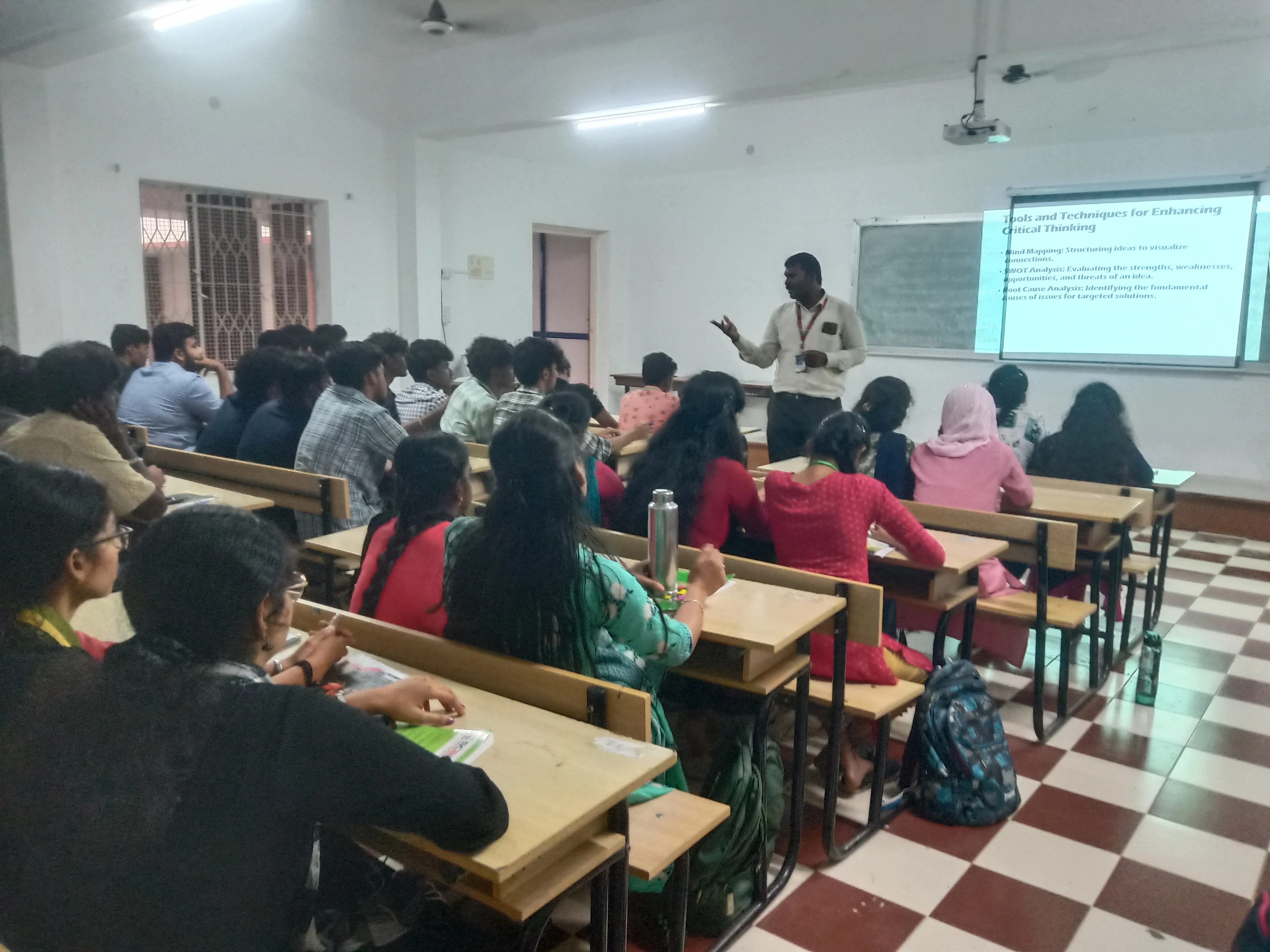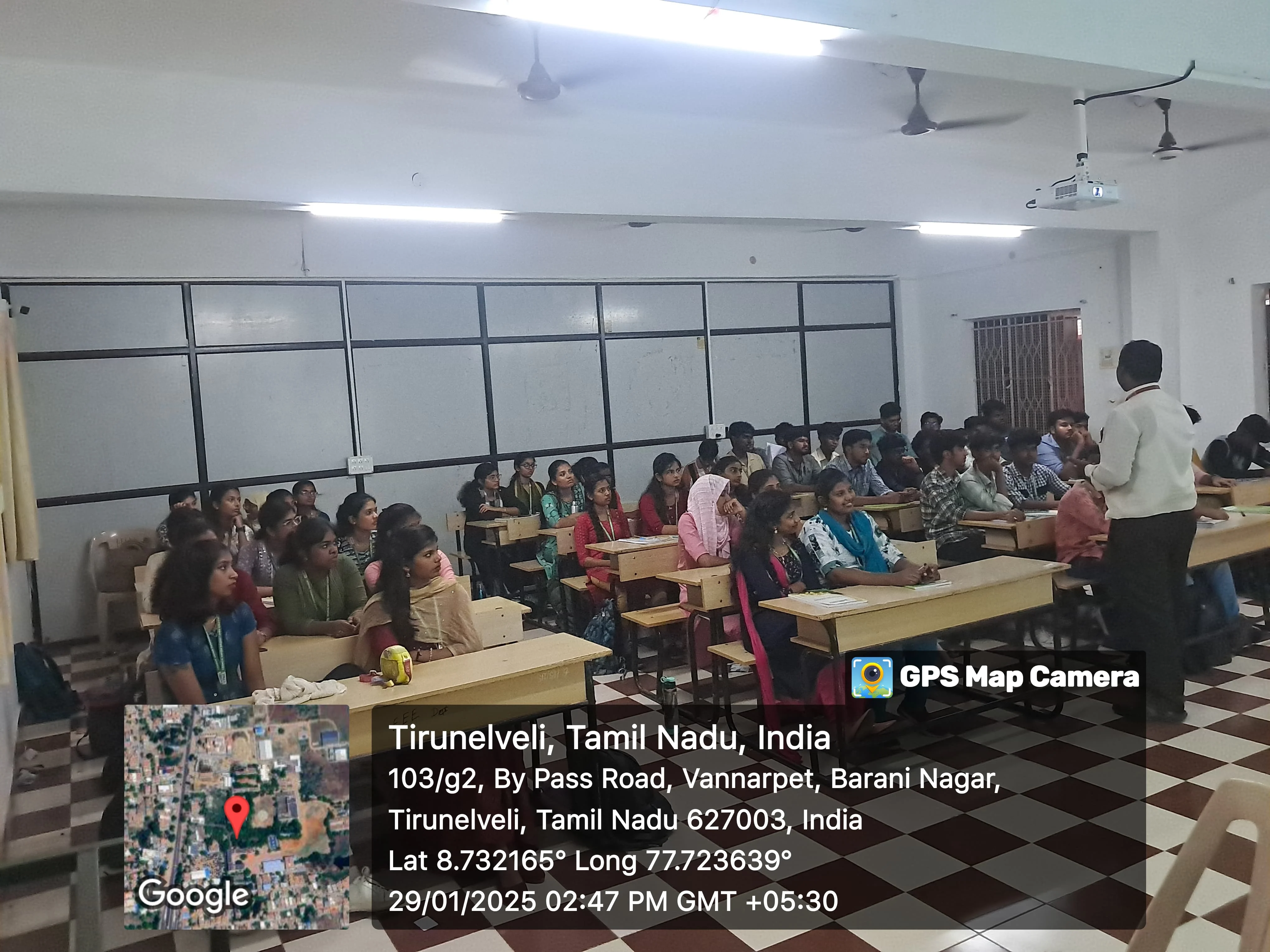
On 29.1.2025 a session on "Expert talk on Process of Innovation and Critical Thinking” was organized by the Entrepreneurship Development Cell and IIC in association with the Department of AI&DS. The session was handled by Dr. K. Vinukumar AP/Mech, Francis Xavier Engineering College. Fifty six students from second year AI&DS and one faculty of AI&DS department participated in the program. The program was coordinated by Mrs.P.Sooriabrabha, Assistant Professor, Department of AI&DS from 1.30PM – 4.00PM.
The program started with the introduction of the guest speaker by Mrs.P. Sooriabrabha. During this session the guest speaker discussed about innovation and critical thinking are essential drivers of progress, enabling individuals and organizations to develop novel solutions to complex problems. The process of innovation begins with identifying a challenge or opportunity, followed by extensive research and exploration of existing knowledge. Critical thinking plays a pivotal role in evaluating information, questioning assumptions, and generating creative ideas. Brainstorming sessions, collaboration, and diverse perspectives fuel the ideation phase, where multiple solutions are considered. Prototyping and experimentation help refine ideas, allowing innovators to test their viability. Failure is an integral part of innovation, as it provides valuable insights for improvement. Analytical thinking helps in assessing the feasibility, scalability, and potential impact of an idea. Decision-making involves weighing risks and benefits, leading to the selection of the most promising solution. Implementation requires effective planning, resource allocation, and execution strategies to bring an idea to life. Continuous feedback loops and iterative improvements ensure sustained innovation.
Critical thinking fosters adaptability, helping individuals navigate uncertainties and overcome obstacles. Logical reasoning and problem-solving skills enable innovators to optimize their approaches. Communication is crucial for articulating ideas, securing stakeholder support, and driving change. Cross-disciplinary collaboration enhances innovation by integrating diverse expertise and perspectives. Ethical considerations guide responsible innovation, ensuring positive societal impact. Technology and digital transformation accelerate innovation by providing advanced tools and data-driven insights. Learning from competitors and industry trends keeps innovators ahead of the curve. Government policies and incentives often influence innovation ecosystems, supporting research and development. Education and skill development nurture a culture of innovation by fostering curiosity and creativity. Organizations that embrace a culture of experimentation and learning foster continuous innovation. Leadership plays a critical role in inspiring teams and fostering an environment conducive to innovation. Critical thinking encourages skepticism and logical analysis, preventing biases and flawed assumptions. Design thinking methodologies help structure innovation processes, making them more user-centric. Open innovation and knowledge-sharing platforms facilitate collaboration between industries and academia. Measuring success through key performance indicators ensures innovation efforts align with strategic goals. In conclusion, innovation and critical thinking are intertwined processes that drive progress, curiosity, resilience, collaboration, and a willingness to challenge the status.

